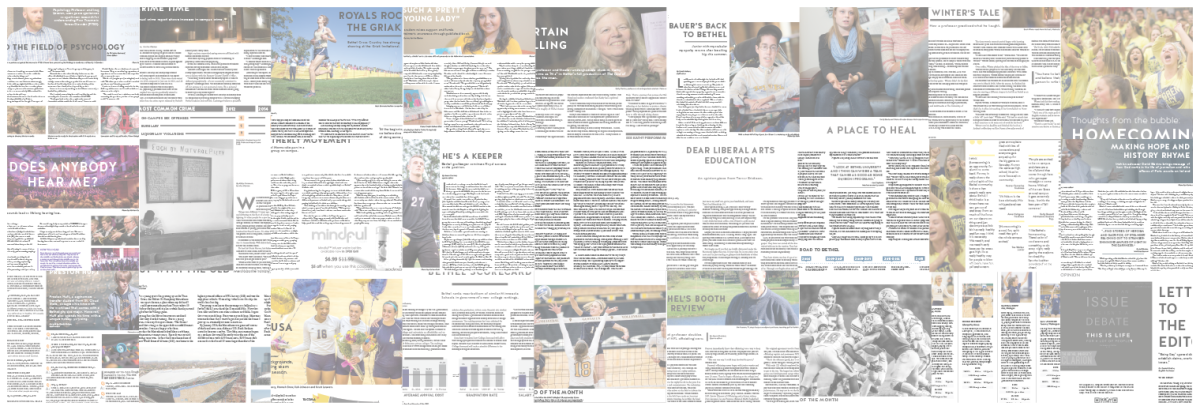Take a closer look at what these phrases mean and the movement they stand behind.
Black Lives Matter:
According to the #BlackLivesMatter website, they are “broadening the conversation around state violence to include all of the ways in which Black people are intentionally left powerless at the hands of the state. We are talking about the ways in which Black lives are deprived of our basic human rights and dignity.”
#BlackLivesMatter formed after the death of Trayvon Martin in 2012 and the later acquittal of George Zimmerman, the neighborhood watch coordinator who shot him.
“#BlackLivesMatter is working for a world where Black lives are no longer systematically and intentionally targeted for demise. We affirm our contributions to this society, our humanity, and our resilience in the face of deadly oppression.”
-http://blacklivesmatter.com/about/
All Lives Matter:
This phrase has been created in response to the Black Lives Matter movement. Originally exclaimed with good intentions as a way to affirm the value in all people, changing the word black to all has not brought people together according to The New York Times.
“Saying ‘All Lives Matter’ in response would suggest to them that all people are in equal danger, invalidating the specific concerns of black people,” The New York Times said.
According to CBC news, Rudy Giuliani, the former mayor of New York City has described Black Lives Matter as racist while appearing on Fox and Friends.
“It is inherently racist because it divides us. All lives matter,” Giuliani said.
Since “All Lives Matter” has had a presence on social media, many people have posted analogies to help the public understand why they see the phrase as problematic. The most popular analogy being about a doctor refusing to treat a broken bone because “all bones matter.”
Blue Lives Matter:
According to the Blue Lives Matter website, the goal of Blue Lives Matter is to “honor and recognize the actions of law enforcement to strengthen the public support of an understandably naive society.”
Blue Lives Matter goes on to explain, “the echo of these negative highlights by the media and political figures have only further damaged community relations, which has greatly increased the inherent threat of the profession. We desire to change these wrongs to law enforcement and once again shed positive light on America’s heroes to help boost morale and gain society’s much needed support.”
This movement formed after Michael Brown attacked Officer Darren Wilson in an aggravated assault August 9, 2014, according to the Blue Lives Matter website.
“Officer Wilson was forced to defend his life by shooting Brown,” their website states.
Much of the pushback against Blue Lives Matter
Us For Us:
This statement is not to be confused with “All Lives Matter.” Instead, this phrase is to identify that this situation is not “us vs. them” according to Associate Dean of Campus Ministries Matt Runion.
“Us for us” rose organically out of the protests at Bethel University Wednesday after controversial and hurtful phrases were spray painted onto a significant rock on Bethel’s campus. In response, Bethel’s president Jay Barnes and Bethel’s Campus Pastor Laurel Bunker repainted the rock Thursday to read “us for us” instead. A large cross intersects between the words.
“When one part of the Body hurts, we all hurt. We’re in this fight for racial justice together,” Runion said.

![Nelson Hall Resident Director Kendall Engelke Davis looks over to see what Resident Assistant Chloe Smith paints. For her weekly 8 p.m. staff development meeting in Nelson Shack April 16, Engelke Davis held a watercolor event to relieve stress. “It’s a unique opportunity to get to really invest and be in [RAs’] lives,” Engelke Davis said, “which I consider such a privilege.”](https://thebuclarion.com/wp-content/uploads/2024/05/041624_KendallEngelkeDavis_Holland_05-1200x800.jpg)
















Just FYI • Oct 6, 2016 at 3:25 pm
Good article except there is misinformation. George Zimmerman was not a police officer he was a volunteer neighborhood watch person on patrol the night he shot Trayvon Martin.